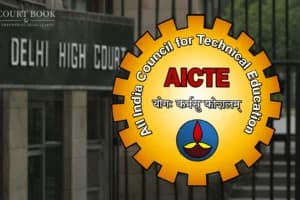In a significant order clarifying adoption procedures for non-Hindu communities, the Madurai Bench of the Madras High Court on Friday declined to compel registration of an adoption deed executed by a Muslim couple and instead directed them to follow the process laid down under the Juvenile Justice (Care and Protection of Children) Act, 2015, and the 2022 Adoption Regulations.
The case, filed by K. Heerajohn, was heard by Justice G.R. Swaminathan, who also expressed concern over delays in India’s adoption system.
Background
The petitioner, K. Heerajohn, and his wife, Kadhan Beevi, were childless. After the death of Heerajohn’s brother, his widowed sister-in-law, Amjad Beevi, agreed to give her eight-year-old son, Mohammed Saleem, in adoption to the couple. An adoption deed dated September 13, 2025, was executed and presented for registration at the Melur East Sub-Registrar Office in Madurai.
However, the Sub-Registrar refused to register the document, citing the parties’ religion-Islam-which does not recognize adoption under personal law. Aggrieved, the petitioner approached the High Court seeking a writ of mandamus directing the Registrar to register the adoption deed.
Court’s Observations
Justice Swaminathan began by noting that while Islamic law does not recognize adoption, the Juvenile Justice Act provides a statutory mechanism allowing adoption “irrespective of religion.” Citing the landmark Supreme Court judgment in Shabnam Hashmi v. Union of India (2014), he said that the Act gives every Indian citizen the option to adopt, even if their personal law does not recognize it.
“The effect of the decision,” the bench observed, “is that a Muslim or Christian may adopt a child under the statutory scheme, even though their religion does not provide for adoption.”
However, the judge clarified that such adoptions must strictly follow the procedures set out in the Juvenile Justice Act, 2015, and the Adoption Regulations, 2022. Simply executing and registering a deed was not sufficient.
Rejecting an earlier view from another case (N. Faritha Begam v. Joint Registrar), Justice Swaminathan held that the 2022 law made the District Magistrate - and not the courts - the competent authority to approve adoptions. “Once the adoption order is issued by the District Magistrate, it is unnecessary to get it registered,” the judge stated.
He further emphasized that Section 1(4) and Section 63 of the JJ Act prevail over personal laws, ensuring that adopted children enjoy the same legal status as biological ones. “An adopted child cannot be given a second-class status,” the bench observed firmly.
The court also noted that while the right to adopt is not yet a fundamental right, it qualifies as a human right, aligned with international conventions recognizing the right to found a family.
Decision
Dismissing the plea for a mandamus, Justice Swaminathan permitted the couple to initiate adoption proceedings through the proper statutory route. He directed the District Child Protection Unit to complete verification within three weeks of application and the District Magistrate to decide within another three weeks.
Taking judicial notice of widespread delays in the adoption process, the judge referred to a The Hindu editorial titled “Should India relax its adoption procedures?” and observed that prolonged waiting periods deny children timely access to nurturing homes.
“The authorities under the JJ Act,” he reminded, “are obliged to speed up the adoption process.”
The writ petition was accordingly disposed of, with no order as to costs.
Case: K. Heerajohn vs. District Registrar, Madurai — Adoption Deed Registration under Muslim Personal Law
Case No.: W.P.(MD) No. 27615 of 2025
Petitioner: K. Heerajohn
Respondents:
- District Registrar, Madurai District
- Sub-Registrar, Melur East Sub-Registrar Office
Date of Judgment: 17 October 2025















